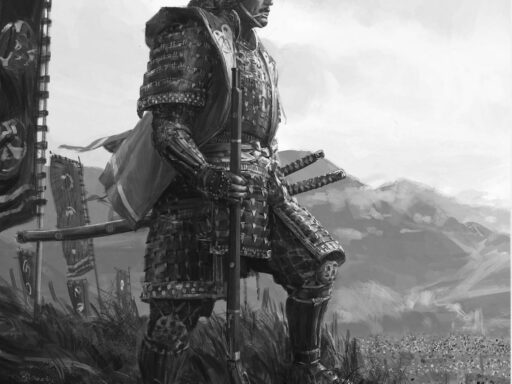Friedrich Paulus demonstrates competence and solid leadership before being surrounded at Stalingrad in the Battle of Stalingrad. He shows clear ability both as a staff officer during the early invasion of the USSR and as commander of the 6th Army. His performance contributes significantly to German advances before the tide of the battle turns.
Paulus begins his career as an intelligent and capable officer. Being selected as one of only 4,000 officers for the interwar German army speaks to his professional regard. He proves his tactical and strategic skills during initial operations in the Soviet Union, where his contributions help achieve early successes.
Under his command, the 6th Army performs well in the field. It advances effectively during the summer of 1942. Paulus leads competent operations while German forces push toward Stalingrad. The broader German command, however, becomes dangerously overextended due to flawed national strategic decisions from Hitler and the high command.
Regarding his decision-making once surrounded in Stalingrad, modern analysis often criticizes Paulus for not choosing to break out earlier. Yet, this view benefits from hindsight, as it overlooks the context and pressures of the time. Paulus operates within a command system heavily controlled by Hitler, whose orders often restrict flexibility in the field.
Many scholars assess Paulus as a generally capable if not highly innovative commander. His adherence to Hitler’s directives reflects the command culture in the German army during this period. Up to Stalingrad, Hitler’s strategies had brought numerous successes, which likely influenced Paulus’s trust in central command decisions.
- Paulus is a competent officer selected for elite military status.
- He helps achieve early successes in the invasion of the USSR.
- The 6th Army performs well before becoming trapped at Stalingrad.
- He follows Hitler’s orders, limiting strategic options.
- Modern criticism of his decision not to break out uses hindsight.
- Overall, Paulus shows solid but not innovative military leadership.
What’s the Assessment of Friedrich Paulus’s Performance Before He Was Surrounded in the Battle of Stalingrad?

Friedrich Paulus’s performance before the encirclement at Stalingrad was competent and demonstrated solid military ability—he was far from an incompetent or foolish commander. But was he a military genius? Not quite. He was a capable officer navigating complex and unprecedented challenges with mixed influence from higher command.
Let’s unpack this more carefully. History tends to remember Paulus mostly for his surrender and the catastrophic defeat at Stalingrad. But what about the time before the trap closed around the 6th Army? What does his record tell us? The answer holds lessons about leadership under pressure and the blurred lines between competence and command failure.
A Solid Foundation: Paulus’s Competence Before Stalingrad
Paulus wasn’t plucked from obscurity. Before the war, he was among 4,000 officers carefully handpicked for the interwar German army. That alone tells us something: military selectors found him promising. They don’t just pick anyone for such a tough, elite wartime force.
In his junior and mid-level commands, Paulus proved his intelligence and reliability. His role as a staff officer in the 1941 invasion of the Soviet Union is a perfect example. The initial success of Operation Barbarossa wasn’t a fluke. Paulus played a part in planning and executing blitzkrieg strategies that overwhelmed Soviet defenses. His contribution here shows strategic vision and solid war-management skills.
Moving up from staff roles to active field command, he took over the 6th Army, which quite frankly performed impressively—considering the challenges. This was no small feat since German forces were stretched thin and operating on vast, logistically nightmarish fronts. Under Paulus, the 6th Army won key battles and advanced significantly deep into Soviet territory.
But and here’s an important “but”—the overall German strategy was flawed at a national level. Hitler’s relentless push and refusal to allow flexibility meant everyone on the ground, including Paulus, had to stretch beyond sustainable limits. They were victims of grand strategic overreach, not just personal failings.
Decision-Making During Stalingrad: Competent or Constrained?
Now, zooming in on the moment of crisis. Once the 6th Army got surrounded in Stalingrad, Paulus faced the ultimate test. Modern historians often criticize his choice not to break out earlier. At first glance, staying put looks like a fatal error.
But hold your judgment. This is where context is king. Paulus was operating under immense pressure, with Hitler insisting on holding every inch of the city. Hitler’s orders weren’t just advice—they were non-negotiable commands backed by political power. And up to that point, Hitler’s directives had worked exceptionally well in various campaigns. So Paulus’s cautious obedience wasn’t simply blind loyalty, but arguably a calculated risk based on what the leadership culture taught German generals: follow the Führer’s will.
In this light, Paulus was a competent if not particularly bold commander—he wasn’t one to buck the system or innovate wildly under catastrophic stress. Several generals before and after him failed to defy Hitler’s demands. So was Paulus uniquely weak? Not really. Many were similarly trapped by circumstance and command structure.
Learning from Paulus’s Pre-Encirclement Performance
So what can commanders and historians take away from Paulus’s time before the encirclement?
- Selection and training matter: Paulus’s early career shows how rigorous officer selection correlates with battlefield effectiveness.
- Context shapes decisions: Even competent commanders can make poor strategic choices if higher command imposes unrealistic demands.
- Complexity of obedience: Obeying orders isn’t always a sign of weakness—it’s a gamble dependent on the trustworthiness of leadership absolutes.
Paulus’s story challenges the simplistic label of “failure.” Instead, it highlights the painful tension between military professionalism and political interference.
Just How Good Was Paulus? A Brief Comparison

Compared to other German generals of his time, Paulus’s record stands up well. He wasn’t known for flashy tactics or extraordinary boldness like Rommel or Guderian—but his reliability and organizational skill were praised. He took a huge army deep into Soviet territory against harsh conditions and extended supply lines. That’s a mark of efficiency.
Now, let’s not gloss over the elephant in the room: Should he have insisted more on breaking out from Stalingrad?
With hindsight, yes. But hindsight is an easy critic. Paulus’s decision to remain inside the city until encircled was influenced by the information he had, the orders he received, and the trust placed in German High Command’s strategy.
This nuanced view suggests Paulus was neither a hero nor a villain, but a professional soldier caught in an impossible situation.
The Human Side: Imagine Being Paulus
Imagine commanding 300,000 men surrounded, low on supplies, winter closing in, and hearing your leader’s voice repeating “Hold fast.” That’s a crushing burden. Most people don’t consider the psychological toll on such leaders. Paulus, a methodical, quiet man, likely wrestled deeply with his decisions.
He eventually surrendered, breaking military tradition, but that’s after facing weeks of starvation and futile fighting. It may have been a practical, if tragic, choice.
Final Thoughts
Friedrich Paulus’s performance before becoming surrounded at Stalingrad was marked by competence, decent leadership, and effective army management within a larger flawed strategy imposed by Hitler. To reduce his legacy to a single moment of surrender overlooks the extensive groundwork he laid as a commander.
So next time you read about Stalingrad, remember this: Historical judgment benefits from understanding the pressures, orders, and personalities involved—not just the final outcome. Paulus exemplifies the challenges many military leaders face—balancing obedience, initiative, and survival under extreme conditions.
He might not have been a battlefield genius. But he certainly wasn’t the blundering, incompetent fool some portray him as.




